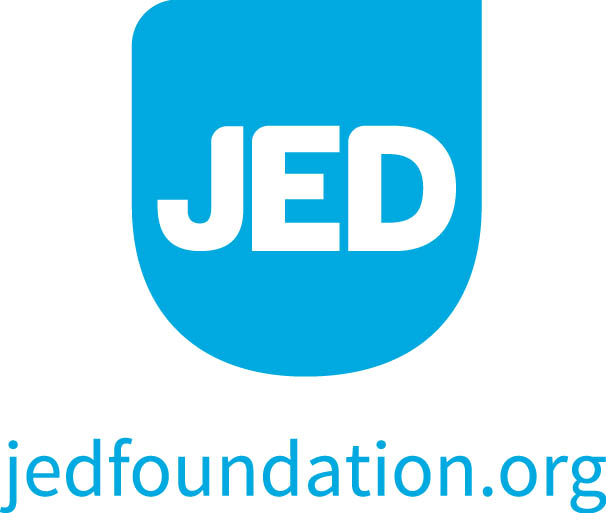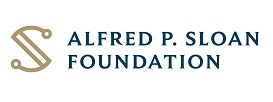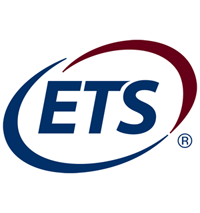You are on CGS' Legacy Site.
Thank you for visiting CGS! You are currently using CGS' legacy site, which is no longer supported. For up-to-date information, including publications purchasing and meeting information, please visit cgsnet.org.
General Content
In an effort to learn about best practices for developing high-impact financial education programs, TIAA embarked on a three-year collaboration with the Council of Graduate Schools (CGS) and more than 30 leading universities. While the participating institutions developed a range of innovative approaches, some common suggestions emerged for financial education programs aimed at this demographic.
FOR IMMEDIATE RELEASE
Contact
Katherine Hazelrigg, CGS: (202) 462-3888 / khazelrigg@cgs.nche.edu
Washington, D.C. – Leaders of graduate institutions from 16 countries across six continents recently agreed on a set of principles and practical actions supporting graduate student mental health and wellbeing.
The statement was released at the conclusion of the 13th Annual Global Summit on Graduate Education, “Cultural Contexts of Health and Well-being in Graduate Education,” co-hosted by the Council of Graduate Schools (CGS) and the University of Manchester, with support from Educational Testing Service (ETS) and ProQuest. The Global Summit is an annual event designed to promote international best practices in master’s and doctoral education.
This year’s theme was chosen by an international steering committee to recognize the critical importance of graduate student mental health and wellbeing in a global context, a focus that can’t be answered using a single method or approach. Addressing these concerns while working to destigmatize mental health treatment has become a priority in the graduate education community, but to date, there has been no coordinated global effort to address this issue.
Summit participants shared examples and background on the national and international context of graduate student mental health and wellbeing in their countries and institutions.
Session topics addressed the organizational and administrative challenges to supporting graduate student mental health and wellbeing, including:
- Addressing national trends and perspectives in cultural attitudes, differences in terminology, current research, legal contexts, demographic differences, and health care systems;
- Creating a Campus Culture that Proactively Supports Wellness;
- Addressing the Role of Mentors and Advisors;
- Supporting “At-Risk” Student Populations; and,
- Prioritizing Professional Development and Career Counseling.
Professor Luke Georghiou, deputy president and deputy vice-chancellor at The University of Manchester, commented that, “Well-being and mental health issues among postgraduate researchers are high on the agenda at The University of Manchester. It has been immensely useful to have learned that this is a shared problem in all parts of the world, and most importantly to share experience on approaches to prevention and early detection of issues, and how to support students and staff in addressing them.”
CGS President Suzanne T. Ortega noted, “One of our shared goals is to foster learning environments that provide all current and future graduate students with the tools and support to succeed. Our discussions over the last two days brought to light new ideas and strategies to take back to our campuses.”
Participants in the summit included deans and other leaders of graduate schools and representatives of national and international associations devoted to graduate education. Along with the United Kingdom and the United States, the countries represented were: Australia, Belgium, Brazil, Canada, Chile, China, Egypt, Finland, Germany, Hungary, Malta, New Zealand, Rwanda, and South Africa.
The consensus statement and practical actions are attached.
###
About University of Manchester
The University of Manchester is a public research university in Manchester, England, formed in 2004 by the merger of the University of Manchester Institute of Science and Technology and the Victoria University of Manchester and is now the largest single-site university in the United Kingdom. Current enrollment at The University of Manchester is over 40,000 students, including 3,935 postgraduate research students.
About CGS
The Council of Graduate Schools (CGS) is an organization of approximately 500 institutions of higher education in the United States and Canada engaged in graduate education, research, and the preparation of candidates for advanced degrees. The organization’s mission is to improve and advance graduate education, which it accomplishes through advocacy in the federal policy arena, research, and the development and dissemination of best practices.
We invite you to explore the electronic proceedings of the 2019 Global Summit, Cultural Contexts of Health and Well-being in Graduate Education. Individual papers are accessible at the links below.
Summit Program and Compilation of Papers*
*Individual papers below have been updated and edited for the electronic proceedings.
Introduction
The 2019 Strategic Leaders Global Summit was co-hosted by CGS and the University of Manchester in Manchester, England, from September 1-3. Senior graduate leaders representing 16 different countries met to discuss the theme Cultural Contexts of Health and Well-being in Graduate Education.
Attendees addressed the many ways the international graduate education community currently works to support health and well-being in graduate education. Delegates also considered areas for improvement, including assessing points of intervention, training mentors, cultivating supportive environments, improving access to campus health services, and improving internal reporting structures. Finally, they examined how individually and collectively the graduate education community can improve upon these efforts for the benefit of students, universities, and broader communities.
Participants included many delegates from CGS international members and international groups of graduate education leaders.
- See the complete introduction by Suzanne T. Ortega, Council of Graduate Schools
Panel 1: National Trends and Perspectives I: Cultural Attitudes, Differences in Terminology, Current Research
Sue Berners-Price, Griffith University
Luke Georghiou & Melissa Westwood, University of Manchester
Shireen Motala, University of Johannesburg
Adham Ramadan, American University in Cairo
Christopher Sindt, Lewis University
Panel 2: National Trends and Perspectives II: Demographic Differences, Legal Contexts, Healthcare Systems
Lidia Borrell-Damien, European University Association
Ximena Luengo, University of Chile
Liviu Matei, Central European University
Alistair McEwan, University of Queensland
Paula Wood-Adams, Concordia University of Canada
Sen Yang, Xi’an Jiaotong University
Panel 3: Creating a Campus Culture that Proactively Supports Wellness
Karen Butler-Purry, Texas A&M University
Amanda Davis, University of Melbourne
Jessica Horowitz, ProQuest Dissertation Publishing
Timo Korkeamäki, Hanken School of Economics
Yanlin Ma, Huazhong University of Science and Technology
Fahim Quadir, Queen's University
Panel 4: Addressing the Role of Mentors and Advisors
Nelson Ijumba, University of Rwanda
Paula McClain, Duke University
Tracy Riley, Massey University
Xian-li Zhou, Southwest Jiaotong University
Panel 5: Supporting “At-Risk” Student Populations
Carlos Gilberto Carlotti, Jr., University of São Paulo
Gillian Houston, UK Council for Graduate Education
Sally Pratt, University of Southern California
Carmen Sammut, University of Malta
Aimée Surprenant, Memorial University
Panel 6: Prioritizing Professional Development and Career Counseling
Joshua Barker, University of Toronto
Pat Buckley, University of South Australia
Hans-Joachim Bungartz, Technical University of Munich
Lorraine Davies, Western University
David G. Payne, Educational Testing Service
CGS contributions to the 2019 Summit were generously supported by Educational Testing Service (ETS) and ProQuest.
Master’s degrees accounted for a staggering 83% of all graduate degrees awarded in 2018, yet there has been relatively little research conducted on master’s program admissions and how admissions criteria match student success. The recently published CGS report, Master’s Admissions: Transparency, Guidance, and Training, aims to clarify the admissions process by assessing quantitative data and regional focus group interviews to better understand master’s admissions. In this webinar, project author Robert Augustine will explain the report’s key findings and field questions from the audience. Presentation slides.
Sometimes a transformative moment in a graduate student’s career comes from the surprising intersection of the local and the global. A master’s student in international studies at North Carolina State University, Fatima Morys Barrios never expected to find parallels between her native Paraguay and Kinston, North Carolina. Through Rural Works!, a summer internship program connecting NC State students to rural North Carolina communities, Barrios discovered the commonalities between her home country and the rural communities around Raleigh, NC. “Paraguay’s…very similar to Kinston.” She said, “Our economy [in Paraguay] is based on agricultural products – we produce and export soybeans and corn and wheat and also beef.”
Barrios’ impact on Rural Works! in Kinston was immediate. She launched “Kickstart Kinston” with funding from NC Rural Center’s Small Business Recovery Program as a resource to help local small businesses grow and modernize. Furthermore, she connected local small businesses to one another in a network of mutual support. “Let’s say business owners do not have a website. We connected them with a web developer here in Kinston. So you don’t have to go to Raleigh, and you don’t have to go to Greenville to do that.”
Her community involvement went beyond “Kickstart Kinston,” however. Barrios worked with several local groups, including Kingston Economic Empowerment, where she organized an employment bootcamp for members of the community who had been incarcerated. She also worked on an oral history project for the African American Heritage Commission by interviewing senior citizens about their memories of Kinston.
Her experience was transformative both professionally and personally. “It changed my career goals,” said Barrios. “I never considered economic development as a way of becoming a consultant or as a person that might work in the planning department of a city hall. But I realized I was really good at that.” Beyond her career, Barrios’ experience also changed the way she thought about the relationship between her work and those it impacted. “I wanted to learn from the people, to learn what they need,” she concluded. To learn more about Fatima, visit the North Carolina State University website.
Visit the GradImpact Feature Gallery to learn more about the amazing, innovative research being done by graduate students and alumni across the world.
Photo Credit: Becky Kirkland
The CGS GRADIMPACT project draws from member examples to tell the larger story of graduate education. Our goal is to demonstrate the importance of graduate education not only to degree holders, but also to the communities where we live and work. Do you have a great story to share about the impact of master’s or doctoral education? Visit our WEBSITE for more information.
EMBARGOED UNTIL:
Tuesday, August 20, 2019 10:00am EDT
CGS Contact: Katherine Hazelrigg – (202) 461-3888 / khazelrigg@cgs.nche.edu
JED Contact: Meg Woodworth – (212) 303-2306 / JEDmedia@yr.com
Washington, D.C. — The Council of Graduate Schools, (CGS) an association of universities that grant master’s and doctoral degrees, and The Jed Foundation (JED), a non-profit that exists to protect emotional health and prevent suicide for our nation’s teens and young adults, today announced a new initiative to support the mental health and wellness of master’s and doctoral students. The 22-month project will create a foundation for evidence-based policies and resources to support graduate student mental health and well-being, prevent psychological distress, and address barriers to effective support and care. CGS and JED will give particular attention to the experiences of underrepresented racial and ethnic minorities pursuing graduate education.
A growing body of evidence indicates that mental health challenges are common among graduate students. However, many barriers exist to effective support and care. These may include campus services that do not necessarily recognize the unique needs of graduate students, and a lack of evidence about what types of support are best suited to them. Students of different backgrounds may also face different sources of stress and may experience different levels of comfort in seeking help.
The new initiative, Supporting Mental Health and Wellness of Graduate Students will address these and other concerns across all broad fields of graduate study. A grant from the Alfred P. Sloan Foundation will support the council’s focus on issues specific to science, technology, engineering, and mathematics (STEM) fields, while a grant from the Andrew W. Mellon Foundation will support the council’s work in the humanities.
“Compared with the undergraduate education context, there has been relatively little attention to supporting the mental health and wellness of master’s and doctoral students,” said CGS President Suzanne T. Ortega. “This is a high-priority issue for CGS and the graduate education community more broadly, and we are grateful to our funders for supporting our work on this issue in a coordinated, thoughtful way, and to JED for contributing their expertise.”
The project will convene an advisory committee of experts and graduate education leaders (listed below), who will counsel CGS on its research and action plan. In addition, CGS will survey its member institutions to better understand existing policies and practices for supporting graduate student mental health and factors that may impact the design and delivery of services. In 2020, graduate deans, graduate students, mental health researchers, and other experts will convene in Washington, D.C., for a one-and-half-day workshop. The final project outcome will include a report and a statement of common principles for supporting graduate student mental health.
“In our work with colleges and universities across the country, we hear time and again the increasing concern for graduate and professional students’ mental health and how best to support them," said Nance Roy, Chief Clinical Officer at The Jed Foundation. “To date, there is no framework focused specifically on the unique challenges and needs of graduate students. JED is excited to be part of this initiative that will not only identify those needs, but also provide recommended practices for addressing them.”
The report resulting from the project will be released by December 2020.
- Dr. Hollie Chessman, Research Fellow, Center for Policy Research and Strategy, American Council on Education
- Dr. Jan Collins-Eaglin, Scientific Advisor, The Steve Fund
- Dr. Michael Cunningham, Associate Provost for Graduate Studies and Research, Tulane University
- Dr. Daniel Eisenberg, S.J. Axelrod Collegiate Professor in Health Management and Policy, University of Michigan
- Dr. Andres Gil, Vice President for Research and Economic Development and Dean of the University Graduate School, Florida International University
- Ms. Susanna Harris, CEO Founder, PhD Balance and doctoral student in microbiology, University of North Carolina at Chapel Hill
- Dr. Paula McClain, Dean of The Graduate School and Vice Provost for Graduate Education, Duke University
- Dr. Suzanne Ortega (Ex-Officio), President, Council of Graduate Schools
- Dr. Susan Porter, Dean and Vice-Provost, Graduate and Postdoctoral Studies, University of British Columbia and President, Canadian Association for Graduate Studies
- Dr. Sally Pratt, Vice Provost for Graduate Programs, University of Southern California
- Dr. Nance Roy (Ex-Officio), Chief Clinical Officer, The Jed Foundation and Assistant Clinical Professor, Yale School of Medicine’s Department of Psychiatry
- Dr. Barry Schreier, Director of the University Counseling Service and Professor of Counseling Psychology, The University of Iowa
- Dr. Tammi Vacha-Haase, Dean of the Graduate College, Boise State University and President-Elect, Western Association of Graduate Schools
# # #
About CGS
The Council of Graduate Schools (CGS) is an organization of approximately 500 institutions of higher education in the United States and Canada engaged in graduate education, research, and the preparation of candidates for advanced degrees. The organization’s mission is to improve and advance graduate education, which it accomplishes through advocacy in the federal policy arena, research, and the development and dissemination of best practices.
About The Jed Foundation (JED)
JED is a national nonprofit that exists to protect emotional health and prevent suicide for our nation’s teens and young adults. We’re partnering with high schools and colleges to strengthen their mental health, substance misuse and suicide prevention programming and systems. We’re equipping teens and young adults with the skills and support to grow into healthy, thriving adults; and we’re encouraging community awareness, understanding and action for young adult mental health. Learn more at jedfoundation.org.
According to recent data from Get Georgia Reading, only 34% of children in the state are reading proficiently by the end of third grade. In addition to future learning barriers, these children are more likely to face other challenges, including disciplinary issues and poor health; they’re also more likely to drop out of high school and spend time in prison. Meghen Bassel, a graduate student in the library media specialist program at the University of West Georgia, has an interesting approach to help children at South Salem elementary school improve their reading skills. His name is Mr. Booker T. Pug.
“Booker offers a nonjudgmental environment for kids to practice reading,” said Bassel. “He's not going to notice if they said a word incorrectly, missed a word or didn't attempt a word. He will simply sit and listen.” Students at South Salem visit the media center at least once a week, and their reward for good behavior is time with Mr. Booker, a certified therapy dog.
“We’ve had students who become different children because of him and the program,” Bassel concluded. “They're no longer afraid of picking up books and reading in front of the class, whereas before they would whisper or pass on the opportunity. They jump at the chance now. It’s amazing to see. One little dog.” To learn more about Meghen and Booker, visit the University of West Georgia website.
Visit the GradImpact Feature Gallery to learn more about the amazing, innovative research being done by graduate students and alumni across the world.
Photo Credit: Julia Mothersole
The CGS GRADIMPACT project draws from member examples to tell the larger story of graduate education. Our goal is to demonstrate the importance of graduate education not only to degree holders, but also to the communities where we live and work. Do you have a great story to share about the impact of master’s or doctoral education? Visit our WEBSITE for more information.
A new CGS policy brief provides an overview of the Grad PLUS loan program and its importance to the ability of graduate students to finance their education. The brief highlights the background of the program, who Grad PLUS borrowers are, and its role as an investment in the U.S. workforce by providing access to graduate education.
The policy brief can be found here.
The Expanding Access to Graduate Education Act was reintroduced on June 17, 2021, by Representatives Ann McLane Kuster (D-NH-02), Fred Upton (R-MI-06), Kim Schrier (D-WA-08), and Tim Burchett (R-TN-02). Below is a tool kit to assist CGS members in their advocacy efforts on behalf of this proposal. This toolkit will continue to be updated with additional resources as advocacy on the legislation continues. If you have any questions, please contact CGS’s Associate Vice President of Government Relations and Public Policy, Amy Scott at amscott@cgs.nche.edu.
Bill Text: Expanding Access to Graduate Education Act
Materials
- CGS Policy Brief: Maximizing Pell Grants to Support Graduate Students
- CGS Data Sources: Increasing Number of Graduate and Professional Students Are Former Pell Recipients
Letters and Statements
- CGS Letter in Support of the Bill
- CGS Press Release with Statement of Support from CGS President Suzanne Ortega
- CGS Member Statements on the Legislation
- Rep. Ann Kuster (D-NH-02) Press Release
A growing body of evidence indicates that mental health challenges are common among graduate students. Unfortunately, many barriers exist to effective support and care. Beginning in 2019, CGS and The JED Foundation undertook a project to create an evidence base to inform future policies, programs and resources. Below are the results of that project, including the report, "Supporting Graduate Student Mental Health and Well-being: Evidence-Informed Recommendations for the Graduate Community."
Report and Recommendations
.png)
- Executive Summary and Recommendations
- "Supporting Graduate Student Mental Health and Well-being: Evidence-Informed Recommendations for the Graduate Community" (Final Report)
- Communications Toolkit
- Call to Action and List of Signatories (Updated December 13, 2021)
- Webinar: Supporting Graduate Student Mental Health and Well-being: Evidence and Recommendations to Catalyze Action (Recording and slides)
Consultant Papers
CGS and JED commissioned three essays on aspects of graduate student mental health and well-being. Authored by experts in their fields, these explore cultural and organizational issues surrounding graduate student mental health; issues specific to international students, and legal issues.”
-
"Unique Challenges and Opportunities for Supporting Mental Health and Promoting the Well-being of International Graduate Students" by Jenny J. Lee (University of Arizona)
-
"Promoting Graduate Student Wellbeing: Cultural, Organizational, and Environmental Factors in the Academy" by Julie R. Posselt (University of Southern California)
-
"Balancing Access and Safety for Graduate Students with Mental Health Issues" by Hannah S. Ross (Middlebury College)
Other Resources
- "CGS & JED Release Evidence-Informed Recommendations and Resources to Support Graduate Student Mental Health & Well-being" (Press Release)
- Webinar: "A Framework on Graduate Student Mental Health: CGS Members Share Ideas and Guidance" (3.16.2021)
- Hironao Okahana, "Pressing Issue: Mental Wellness of Graduate Students" (4.9.2018)
Contact
In Partnership with

Project Funders







.jpg)
